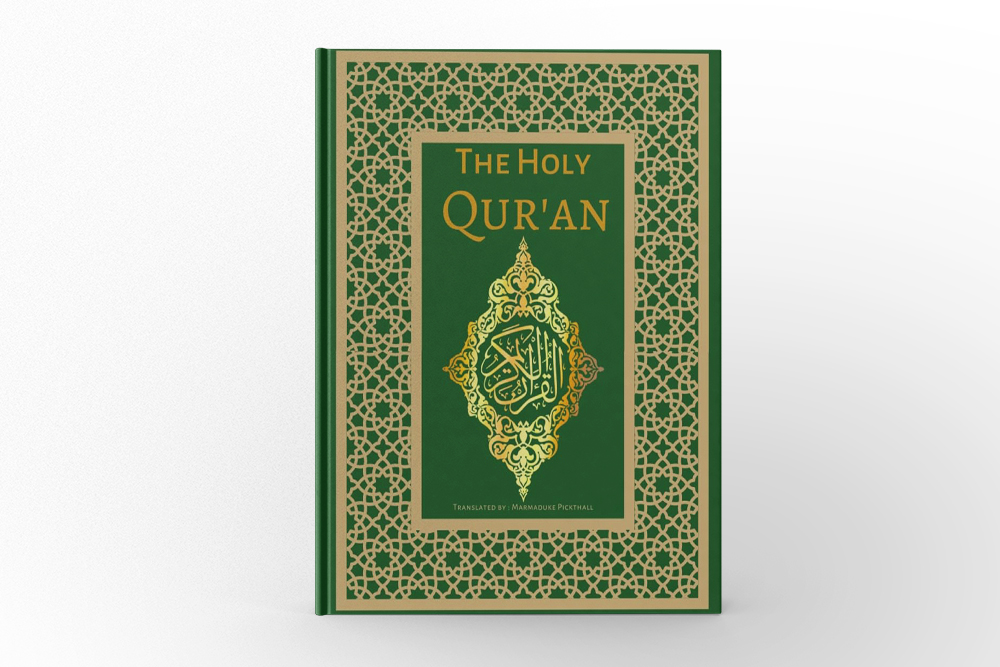The Quran stands as a foundational text in Islam, revered by Muslims around the world as the literal word of God as revealed to the Prophet Muhammad. This sacred book is not just a religious guide but a profound source of spiritual, moral, and legal instruction.
Author’s Background
The Quran is believed by Muslims to have been revealed by God (Allah) to the Prophet Muhammad over a period of approximately 23 years, beginning in 610 CE. Muhammad, born in Mecca, was regarded as the final prophet in a line that includes figures such as Abraham, Moses, and Jesus. The Quran was revealed in the Arabic language, and its verses were memorized and recorded by Muhammad’s followers during his lifetime. After his death, the text was compiled into a single book by his successors.
In Depth Summary
The Quran is divided into 114 chapters, known as surahs, which vary in length and cover various aspects of faith, law, and morality. The chapters are further divided into verses called ayahs. The Quran addresses both the spiritual and practical aspects of life, offering guidance on worship, personal conduct, social justice, and legal matters.
The Structure and Content of The Quran
Early Meccan Surahs
The early surahs revealed in Mecca primarily focus on the core principles of monotheism and the stories of past prophets. They emphasize the oneness of God, the importance of moral integrity, and the need for faith in the unseen. These surahs also highlight the themes of resurrection, judgment, and the ultimate reward or punishment in the afterlife.
Later Medinan Surahs
The surahs revealed later in Medina tend to address the social, legal, and ethical issues faced by the growing Muslim community. They include instructions on social justice, such as the rights of women, the poor, and orphans, as well as regulations on marriage, inheritance, and criminal justice. The Medinan surahs also focus on the relationship between Muslims and non-Muslims, providing guidelines for coexistence and conflict resolution.
Thematic Elements
Monotheism and Worship
One of the central themes of The Quran is the concept of monotheism (Tawhid). The text underscores the belief in one, all-powerful God who is the creator and sustainer of the universe. Worshiping God alone and adhering to His commandments is presented as the essence of faith. The Quran details various forms of worship, including prayer (Salah), fasting (Sawm), charity (Zakat), and pilgrimage (Hajj).
Prophethood and Revelation
The Quran recounts the stories of previous prophets such as Adam, Noah, Abraham, Moses, and Jesus, illustrating their roles as messengers who conveyed God’s will to humanity. Muhammad is described as the final prophet, and the Quran is seen as the culmination of the divine messages delivered through these prophets. The Quran itself is considered the ultimate revelation, providing a complete and final guide for humankind.
Ethics and Law
The Quran provides comprehensive guidance on ethical behavior and legal principles. It addresses personal morality, including honesty, patience, and forgiveness, as well as social justice issues such as equity, compassion, and the protection of human rights. The legal rulings in the Quran form the basis of Islamic law (Sharia), influencing both personal conduct and societal governance.
Personal Reflections
Reading The Quran can be a deeply transformative experience. For Muslims, it serves as a direct communication with God, offering spiritual nourishment and a framework for daily life. The Quran’s poetic language, combined with its profound messages, has a unique ability to inspire reflection and personal growth. For non-Muslims, exploring The Quran can provide valuable insights into Islamic beliefs and practices, fostering a greater understanding of the world’s second-largest religion.
Recommendation
The Quran is highly recommended for those seeking to understand Islamic theology, ethics, and culture. Its comprehensive teachings offer valuable lessons on spirituality, morality, and social justice. Whether approached from a religious perspective or a scholarly one, engaging with The Quran provides a deeper appreciation of its role in shaping the lives and beliefs of millions.
Impact and Legacy
The Quran has had a profound impact on history, culture, and law. It has inspired a rich tradition of scholarship, art, and literature in the Islamic world. The Quranic verses are recited daily in prayers and special occasions, and its teachings continue to shape the lives of Muslims globally. The book’s influence extends beyond religious boundaries, contributing to discussions on human rights, ethics, and social justice in various contexts.
Conclusion
The Quran remains one of the most significant and influential texts in human history. Its teachings encompass a wide range of spiritual, ethical, and legal guidance, making it a cornerstone of Islamic faith and practice. Its impact on individuals and societies underscores its enduring relevance and profound significance.
